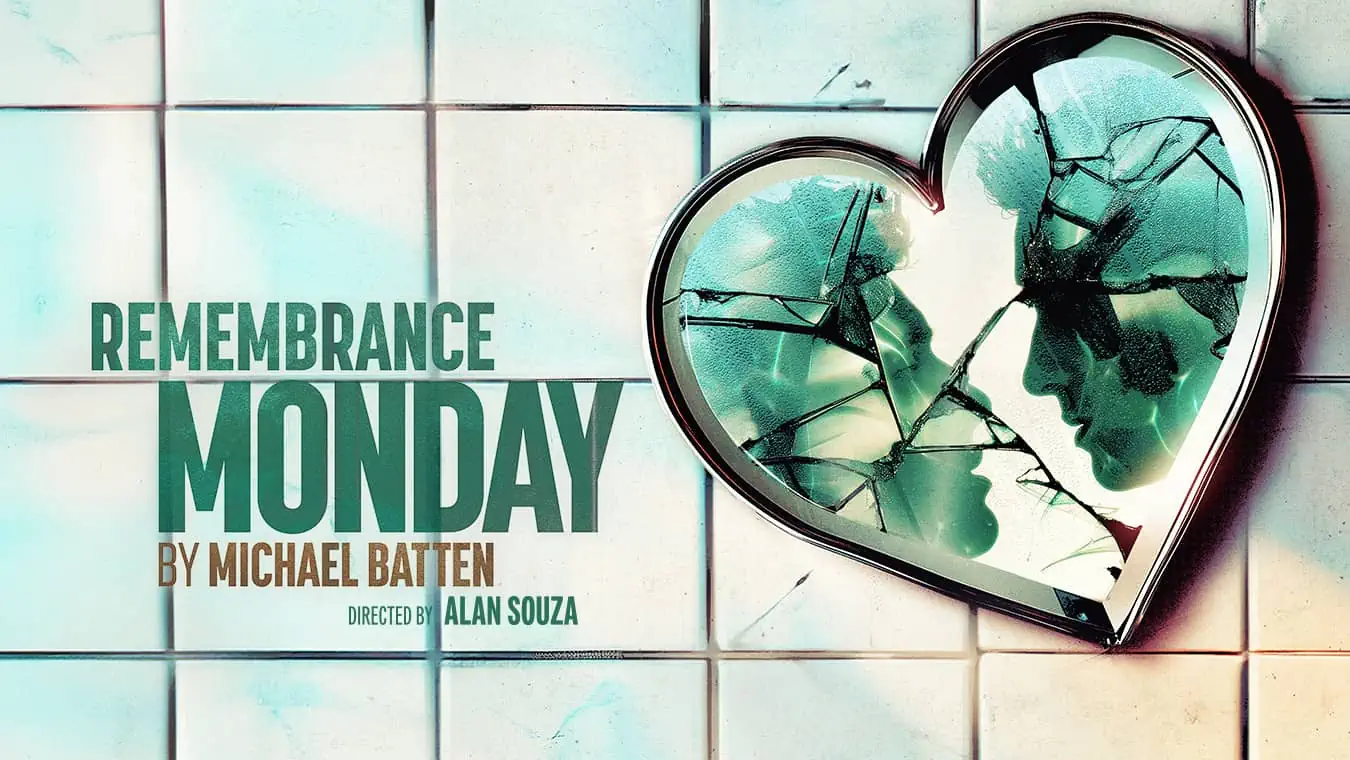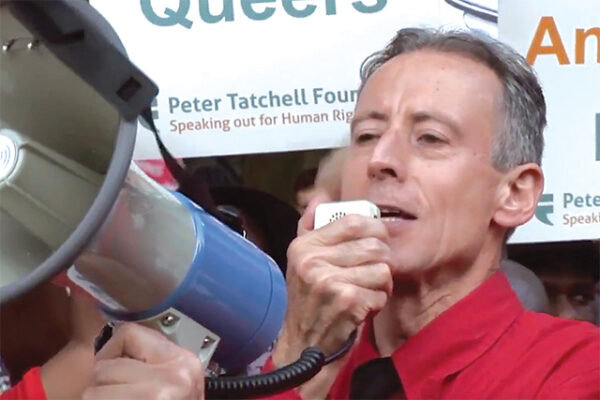Forget your Foucault, the gays stormed into town for liberation during the Stonewall Riots in 1969, and sex was very much part of what was on their plate. We’re here, we’re queer, and yes, we do fuck up the ass, and we do it an awful fucking lot.
And any middle-England prudes out there best get used to that fact, because after thousands of years of gay loving, that fact isn’t about to change now! During the 70s and up until the advent of AIDS in the early 80s, homosexual free love ruled as gay men celebrated their freedom to have sex within the law.
Today, the focus has turned more towards love and marriage, as recognised by recent political machinations and the theme of this year’s Pride. However, as our culture has progressed, has the gay community inversely become more conservative about our lusts? Are we less keen now to celebrate sex, the thing that essentially makes us what we are?
Before the decriminalisation of homosexual acts in the late Sixties, men who had sex with men lived in fear of persecution for their actions. They skulked into toilets and parks to meet their partners, and were frequently arrested by the police and charged by the British legal system for doing so.
Despite prominent figures of the day such as self-described sexologist Alfred Kinsey publishing reports suggesting homosexuality was much more widespread than originally thought, many men were imprisoned for their homosexuality or even chemically castrated – as in the case of celebrated war hero and mathematician Alan Turing. Turing was arrested for committing homosexual acts in 1952 and put on a year’s course of oestrogen to cut his libido, which also gave him female breasts. He committed suicide in 1954.
After a number of high-profile other arrests of important politicians and members of the British Establishment for the same crime, finally the Sexual Offences Act of 1967 partially decriminalised sexual acts between consenting adult men. However, they must be committing this act in private (only two people could not only be in the room, but also in the house), and both men must be over the age of twenty-one, five years higher than the heterosexual age of consent of sixteen.
It was with the Stonewall riots in New York 1969 that the gay liberation movement really began to happen, though. As the pictures infiltrated the world’s media of a group of infuriated gay men finally fighting back against a police raid on their bar, other gay groups the globe over demanded their freedom from repression, too.
Perhaps it is unsurprising that this freedom from repression, once afforded, manifested itself in a deep, provocative and very visible exploration of their newly realised sexualities. Whilst the heterosexual world had enjoyed its own free love movement with the sexual revolution in the Sixties, the Seventies was the decade where the gays where not going to be afraid anymore. A 1970s gay novelist named Brad Gooch suggested in his ‘Golden Age of Promiscuity’ that the gay rights movement was a reclamation of cultural citizenship through sex.
The documentary film Gay Sex in the 70s, released in 2005, looks back at this age of sexualised glory: “All of those forbidden sex acts were free for the taking, and that was very liberating because it removed shame. It replaced shame in fact with great joy and self-discovery, of your body and other peoples’ bodies, and loving each other, and all the good stuff about free love,” to quote one of the documentary’s contributors.
Magnificent as this may sound, there was also no doubt some bad stuff about free love too, but both sides of the free gay sex mirror were cracked, shattered and swept away when the 80s and AIDS arrived. In his seminal novel of the time and epidemic, The Farewell Symphony, Edmund White recounts how men would find a purple spot on their foot – one of the first signs of the illness – in the gym showers and scream in panicked hysteria. There was no cure, there were no drugs. The Farewell Symphony takes its title from Haydn’s Symphony No.45, where one violinist is left alone on the stage as one-by-one his fellow musicians exit into the dark. People were dying by the day.
Sex in this context became hugely curtailed. But David France records in his recent and excellent documentary ‘How to Survive a Plague’ (2012) on how many of the gay community plunged their passions into other avenues, in convincing government officials that something needed to be done, and pharmaceutical companies that they urgently needed to develop a drug.
With the turn of the 90s though, those drugs finally came through, and a physically and emotionally scarred gay community was able to lick its wounds. Gay sex was again something that could tentatively be promoted as sexy and exciting, rather than the conveyor of a plague. ’95 was a breakthrough: “Britain was swinging again, Labour was on its way, the gay bars went from blacked out windows to being open,” says Janne Öijer, QX designer, who came to London from Sweden in 1995. “Because of AIDS medication there wasn’t as much doom and gloom.” Were there lots of safe sex messages? “Not really, but if you’d lived through the 80s, you kind of had it ingrained into you. I always used condoms. And there weren’t the sex clubs or online hook-ups that are available now, the underground sex was limited to saunas and cruising in parks.”
Keeping it in the family, I also spoke to QX publisher, Ben Schubert, who lived in London through both the 80s and 90s before starting this very magazine, about his perceptions of the changing mores of gay sexuality at that time. “From 1984 onwards a lot of people didn’t have sex because they were too terrified, they didn’t know how HIV was transmitted. Friends would visit HIV positive patients in isolation units wearing masks and gloves,” he remembers. “When people became aware of how HIV was transmitted, adverts like the falling tombstone, which were widely condemned at the time, actually made people think. The implication of HIV was clear. And advances in medication that were being made were something to rejoice about.”
So it seems the 90s were again an age of sexual liberation, if laced by the ubiquitous advent of the condom, in all areas of gay culture including its more conscientious pornography. Ben continues, “A dear friend who had HIV tried everything, even intravenous Vitamin C. Two months later he had pneumonia. Within a couple of days he was dead. It was that quick.” Ben looks out of
the office window at the street below. “Of course it’s different now, it’s no longer a death sentence. But it’s still difficult to live with, I can’t help feeling people aren’t being as safe as they should be now.”
And what of now? How has gay sexuality developed in the post-millennium world up to 2013? You only have to flick through the pages of this magazine to see that sex is everywhere; on all the adverts a pretty boy or a muscled man smiles half-naked, every bar or club markets itself as a nirvana-like place full of potential, beautiful lays.
HIV awareness is generally very high, and condom use is consistently promoted and, whilst there is still a significant risk in contracting the disease, modern medication is of an excellent quality. There are even courses like PEP which may eradicate the virus in its early stages; not to be confused with the new trial for PrEP, a pill being tested in the UK at the moment that has the potential to make its user almost immune to contracting HIV. All this would seem to suggest that we are in the throes of a new age of gay sexual freedom, glorying in what we do with our cocks.
To some extent this is true, but also there may be a concurrent resistance to all this sex that exists upon the scene: manifesting itself as judgement. Rather than taking on the macho straight maleculture of applauding players collecting their notches on the bedpost, it seems a lot of guys on the scene have a ‘girls calling other girls sluts’ mentality.
This is not to say that rampant promiscuity is to be idolised, but being too heavily either side of this fence seems to be unhealthy for all parties. Perhaps this is emphasised by events like the HustlaBall. On one side it is a celebration of gay sexuality, of all that we as homosexual men can do with our bodies, and enjoy it and be proud of it. Others look down on it from their moral high ground as a den of depravity. What do I think? Just enjoy it, sex is good and them boys on stage be damn pretty!
But, to end on a note that I hope isn’t too Carrie Bradshaw-ish, as much as I love sex, and I’m sure you do too, just remember the theme of this year’s Pride is love and marriage. As with all things that we indulge in life, it’s all about balance, really. Sex can give you a lot, but sex on its own isn’t going to give you a smile that stills your heart for a second of breathlessness, sex ain’t gonna snuggle down to watch movies with you on the sofa and sex isn’t going to be there to wipe away your tears. That, my boys, is what love is for.
• Hustlaball London is at Electric Brixton (Town Hall Parade, SW2 1RJ) on the 29th June 2013, 11pm–late. Advance tickets £26 plus booking fee.• Gay Sex in the 70s is available on VOD and DVD now via Peccadillo. www.peccapics.com









